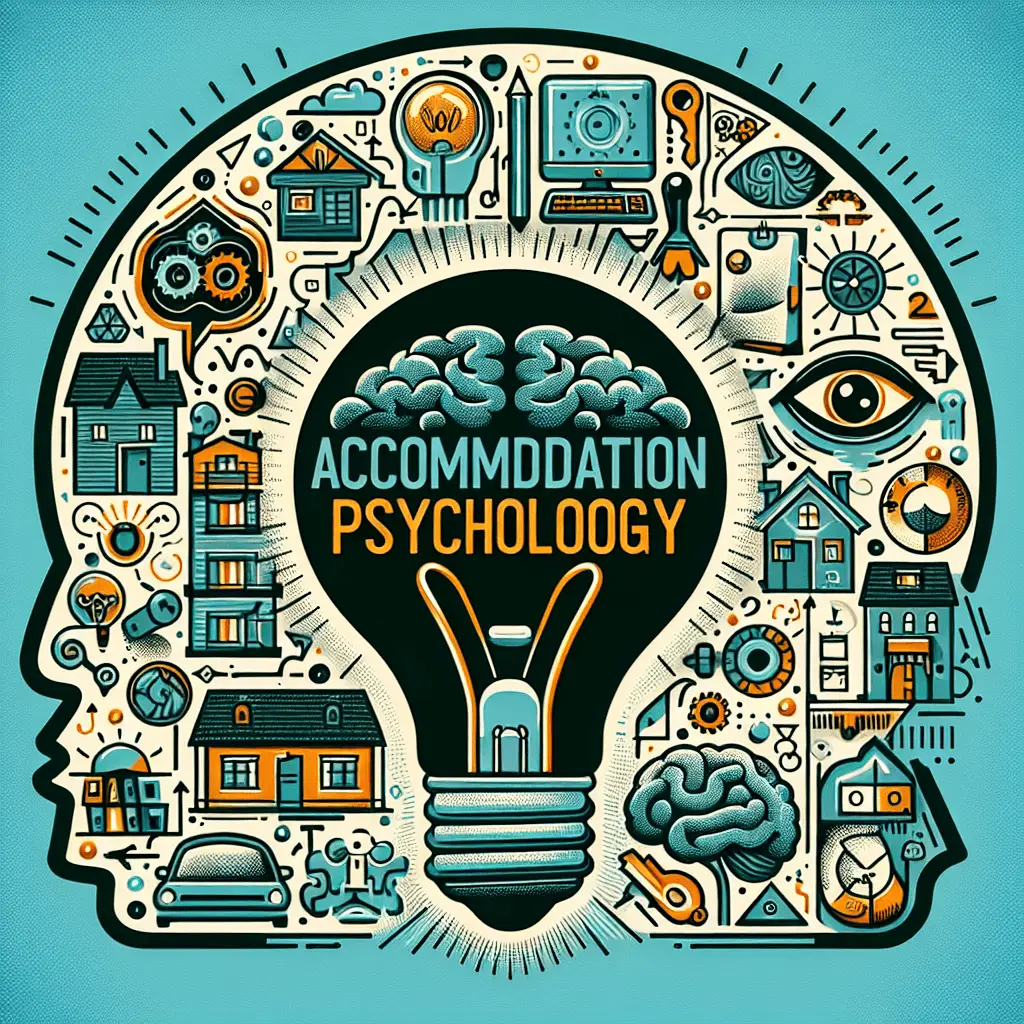
The Ultimate Guide to Accommodation Psychology: Understanding Our Responses to Change

Introduction
Adapting to new situations and challenges has never been more critical in today’s fast-paced world. Whether adjusting to a new job, moving to a different city, or coping with unexpected changes in our personal lives, our ability to accommodate change shapes our well-being and success. This is where the concept of accommodation psychology comes into play—a fascinating field that explores how individuals respond to environmental pressures and changes in their social or psychological surroundings.
By gaining insight into accommodation psychology, you can empower yourself to cope with and thrive amidst change. In this ultimate guide, we will delve into the principles of accommodation psychology, examine its real-world applications through compelling case studies, and provide actionable insights you can implement. Let’s explore how understanding your accommodation strategies can lead to more adaptive behaviors and enhanced resilience.
What Is Accommodation Psychology?
Accommodation psychology is rooted in developmental and cognitive psychology. It refers to the mental processes involved when individuals modify their coping strategies in response to external changes or challenges. This concept’s core is adapting mental frameworks to incorporate new experiences, emotions, and information.
The Theoretical Framework
- Jean Piaget’s Theory of Cognitive Development: Piaget proposed that learning occurs through two key processes: assimilation and accommodation. Assimilation involves integrating new information into existing schemas without altering them. In contrast, accommodation requires changing schemas to incorporate new, conflicting information, enhancing our understanding.
- Vygotsky’s Social Development Theory: Lev Vygotsky emphasized the social context of learning. In this sense, accommodation psychology considers how social interactions and cultural contexts shape our adaptive processes.
Critical Principles of Accommodation Psychology
- Adaptability: Individuals vary in their ability to adjust their cognitive frameworks, highlighting the importance of flexibility in thought.
- Resilience: The capacity to bounce back from setbacks is closely associated with one’s ability to accommodate change.
- Social Influences: The role of social support and cultural background significantly impacts how people process and adjust to changes.
Real-World Applications of Accommodation Psychology
Case Study 1: Successful Career Transition
Background: Meet Sarah, a marketing professional who was laid off during an economic downturn. She initially felt overwhelmed by the challenge of finding a new job in a competitive market.
Accommodation Process: Instead of becoming disheartened, Sarah employed accommodation psychology principles. She adjusted her professional persona by acquiring new skills through online courses and networking within her industry. By altering her worldview to embrace lifelong learning, she adapted her job-search strategies, landing a position that better suited her evolving interests.
Analysis
Sarah’s experience highlights how accommodation psychology can inspire individuals to pivot in adversity. By shifting her cognitive approach, she secured employment and reignited her passion for her career.
Case Study 2: Coping with Personal Loss
Background: James experienced the sudden loss of a close family member. Initially, he struggled with feelings of grief and isolation.
Accommodation Process: Rather than bottling up his emotions, James reached out to a support group, ultimately sharing his feelings and discovering commonality in others’ experiences. He learnt to redefine his understanding of grief and its role in life, accommodating the new reality of living without his loved one.
Analysis
James’s story exemplifies the profound impact of social influences on accommodation psychology. By engaging with others who faced similar challenges, James could adapt his mental frameworks and foster resilience.
The Benefits of Understanding Accommodation Psychology

- Enhanced Emotional Intelligence: Learning about accommodation psychology empowers individuals to recognize their emotional responses, allowing for better management of feelings during change.
- Improved Problem-Solving Skills: By fostering an adaptive mindset, individuals can tackle challenges more creatively and effectively.
- Stronger Relationships: Understanding how others cope with changes can help strengthen interpersonal ties through empathy and support.
- Personal Growth: Embracing the accommodation process encourages lifelong learning and personal development.
How to Apply Accommodation Psychology in Your Life
- Embrace Change: Shift your mindset to view change as an opportunity for growth rather than a setback.
- Practice Flexibility: Allow for adjustments in your plans and strategies, acknowledging that not everything will unfold as anticipated.
- Seek Support: When navigating significant changes, don’t hesitate to reach out to friends, family, or professionals.
- Reflect Regularly: Set aside time to reflect on your experiences and the adjustments you’ve made. Journaling can be an effective way to document your thoughts and progress.
- Engage in Continuous Learning: Commit to lifelong learning through formal education or self-directed exploration to remain adaptive in various areas of your life.
Conclusion
Understanding accommodation psychology is not just an academic exercise; it’s a vital skill for navigating the complexities of life. By embracing the principles behind this psychological concept, you can empower yourself to adapt to changes more effectively and build resilience in the face of challenges.
Knowledge acquisition is the first step, but applying these insights in daily life will ultimately lead you to survive and thrive. Every small step toward accommodation can lead to significant transformations, equipping you to face the uncertainties ahead confidently.
FAQs on Accommodation Psychology
1. What are the key components of accommodation psychology?
Accommodation psychology involves adaptability, resilience, and the impact of social interactions on how we process and adjust to change.
2. How can I improve my accommodation skills?
You can enhance your accommodation skills by embracing change, practicing flexibility, seeking support, and engaging in continuous learning.
3. Is accommodation psychology relevant in the workplace?
Absolutely! Understanding accommodation psychology can improve teamwork, enhance problem-solving abilities, and foster a more adaptable workplace culture.
4. How does accommodation psychology relate to mental health?
Accommodation psychology is closely linked to mental health, as individuals who can adapt to changes and challenges tend to experience better psychological well-being.
5. Are there specific techniques to apply accommodation psychology in daily life?
Yes, you can apply accommodation psychology techniques such as reflective journaling, establishing a solid support network, and maintaining a mindset open to learning and growth.
By savouring the journey of personal and professional growth through accommodation psychology, you’re bound to find new opportunities and strength in the face of life’s inevitable changes. Whether it’s a shift in your career, a move to a new city, or personal challenges, the ability to accommodate not only defines your resilience but enriches your experience of life itself.


















